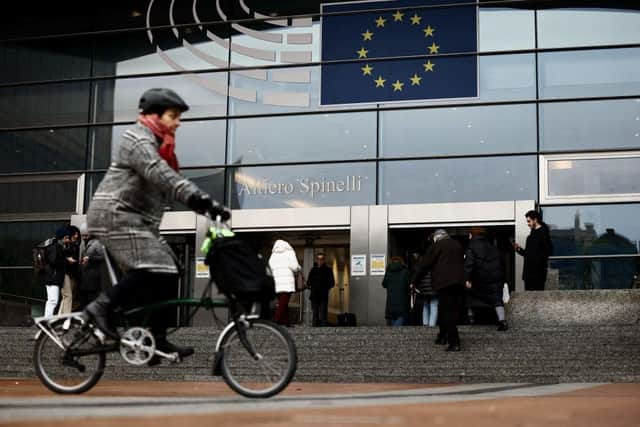European Union needs to practice what it preaches when it comes to corruption
A bribe of some kind – a packet of coffee, bottle of wine or even a small envelope stuffed with money – was mandatory at a visit to the GP. At the school I taught at, which had a grammar school-style set-up with a tough entrance exam, there were always one or two children in a year group whose academic prowess didn’t seem to match that of their classmates.
“Rich parents,” I would be told, with the rubbing of thumb and forefinger that indicated a bribe handed out somewhere in the local education system.
Advertisement
Hide AdAdvertisement
Hide AdThat was before Romania joined the European Union. Tackling endemic corruption was one of the major barriers to its accession, which eventually took place in 2007. Corruption is still one of the biggest blocks for existing EU hopefuls Albania, North Macedonia, Montenegro and Serbia.


Yet now the EU itself is at the heart of a major bribery investigation, which has been described as one of the biggest corruption scandals in European Parliament history.
Arrests have been made of four people involved in the European Parliament suspected of taking bribes from a Gulf nation – believed to be Qatar, although this has been denied by the government.
This comes after representatives working for Russia and Qatar were accused of bribing Fifa officials to secure hosting rights for the football World Cup.
Those arrested have not been named, although Greek MEP and European Parliament vice-president Eva Kaili was among those previously implicated in the case.
Prosecutors suspect the Gulf state tried to influence Parliament decisions with donations of money or gifts. Cash worth about €600,000 (£516,061) was seized by police, as well as computers and mobile phones.
Ms Kaili’s assets have reportedly been frozen in Greece and she has been suspended from her duties by the president of the European Parliament, as well as from the parliament's Socialists and Democrats Group. She has also been expelled from her Greek party Pasok.
Anti-corruption group Transparency International has warned this is “not an isolated incident”, saying the EU had created a “culture of impunity” over decades. Others have called for major reform.
The EU needs to look internally and practice what it preaches to countries which want to join.
Comments
Want to join the conversation? Please or to comment on this article.